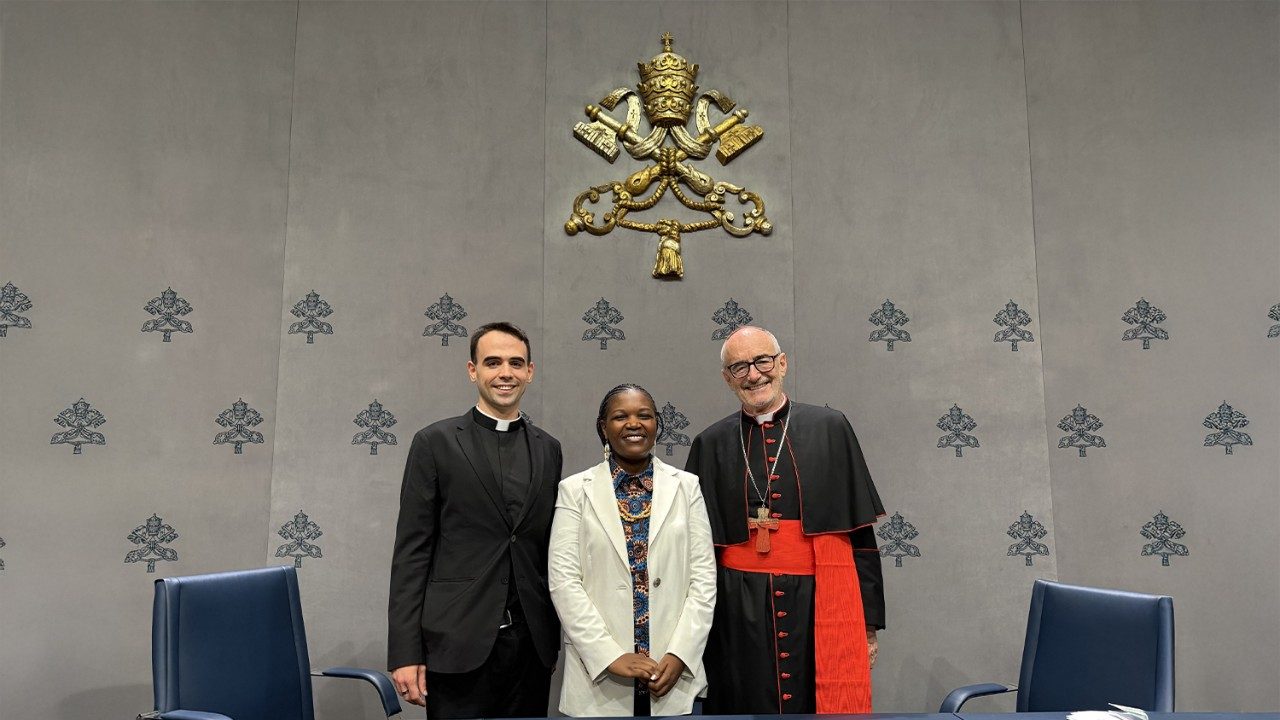The Holy See Press Office holds a briefing to present the Fifth World Meeting of Popular Movements, scheduled to take place in Rome from 21 to 24 October, followed by a Jubilee Pilgrimage. Participants will be received in audience by Pope Leo XIV, and participate in a Jubilee Mass at the conclusion of their meeting.
By Linda Bordoni
The Church’s ongoing journey with the world’s Popular Movements takes a new step later this month with the Fifth World Meeting of Popular Movements, to be held in Rome from 21 to 24 October, followed by a Jubilee Pilgrimage on 25–26 October.
Participants in the meeting will be received in audience with Pope Leo XIV on 23 October, and will take part in a Jubilee Mass in St Peter’s Basilica presided over by the Pope on Sunday 26 October.
Cardinal Czerny: Development must involve the poor
Presenting the event at the Holy See Press Office, Cardinal Michael Czerny, SJ, Prefect of the Dicastery for Promoting Integral Human Development, said that genuine progress cannot be achieved without the participation of the poor themselves. Quoting from Pope Leo’s apostolic exhortation Dilexi te, he said the poor aspire “to lead a more dignified life by developing their abilities and contributing their fair share.”
The cardinal warned against any form of paternalism that limits itself to meeting immediate needs. “Solidarity,” he said, “means fighting the structural causes of poverty and inequality. It is a way of making history, and this is what the popular movements are doing.”
Don Mattia Ferrari: A process, not an event
Don Mattia Ferrari, coordinator of the Encuentro Mundial de Movimientos Populares (EMMP), stressed that the encounter is “not an event, but a stage in a process” that began years ago when excluded communities started walking with the Church.
These movements, he explained, are made up of those denied access to land, housing, work, or basic rights who unite to fight injustice and to build a solidarity-based economy. Their collaboration with the Church, first encouraged by Pope Francis, has grown into a synodal process that continues today.
This fifth meeting will be the first with Pope Leo XIV and the first in which delegations of popular movements come accompanied by their local Churches, represented by bishops, priests, religious, and laypeople. “It fulfils Pope Francis’s dream,” Don Ferrari said, “that the Church herself should accompany the poor.”
The programme, he explained, includes three key moments:
– The World Meeting of Popular Movements at Spin Time Labs, Rome, 21–24 October.
– The Audience with Pope Leo XIV at 4 p.m. on 23 October in the Paul VI Hall.
– The Festival at Piazza Vittorio on the evenings of 22–24 October, organised with the support of the City of Rome, offering space for encounter and sharing with citizens and social partners.
– Finally, the Jubilee Pilgrimage on 25–26 October, coinciding with the Jubilee of Synodal Teams and Participatory Bodies — “a providential sign,” he said, “of the Church’s synodal and missionary character.”
Micheline Mwendike: “We believe fraternity is still possible”
Micheline Mwendike Kamate from the Democratic Republic of Congo voiced the commitment of those who suffer most from economic and environmental injustice.
She spoke of her country’s paradox: rich in minerals essential for the global energy transition, yet home to millions who suffer hunger and deprivation.
“The injustice our peoples endure,” she said, “is the fruit of structural violence accumulated over centuries — colonisation, neocolonialism, and the dictatorship of an economy that kills.”
“Together,” she said, “we can build another possible world. Before wars, injustice, and corruption, we still believe in fraternity.”
